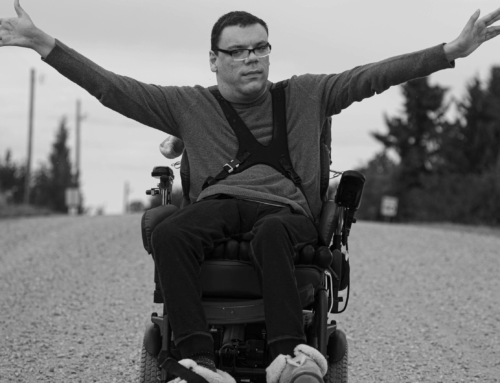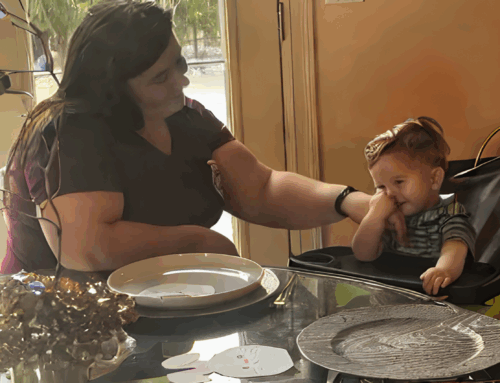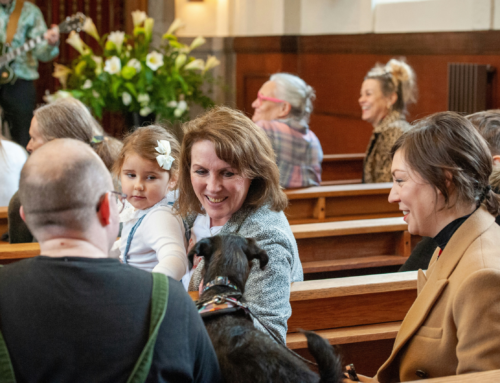This is the second post in a two part series on Inshallah Choir and the lessons Chantal has gleaned from her time as part of this community, specifically how she finds a sense of belonging in lyrics. (Part 1: Belonging Resonates in Rehearsals.)

Draw the Circle Wide
Many years ago, the song Draw the Circle Wide was incorporated into the Inshallah repertoire. The chorus of this song says, “draw the circle wide. Draw it wider still. Let this be our song; no one stands alone, standing side-by-side, draw the circle wide.” I appreciated the song from the very beginning for its proclamation of inclusivity and solidarity with one another. There was however, something just a little awkward singing about standing side-by-side when you can’t stand or when the first two rows of the choir are sitting on either side of you.
I brought this to the attention of the choir director thinking that it would be an interesting if not fun experiment to adapt the chorus slightly, replacing the word standing with sitting. Little did I know that my suggestion would impact the lyrics and the live experience of that song for a long time to come. Since then, whenever Inshallah has opportunity to sing that song the entire choir sits for at least one chorus and together we all sing. “Draw the circle wide. Draw it wider still. Let this be our song. No one sits alone. Sitting side-by-side, draw the circle wide.”
Momento Novo
More recently Inshallah has learned Momento Novo which is translated as New Moment. This song resonates with me on many levels. The refrain is, “We bid you, come enter the circle with all people.” It emphasizes equality and unity of people, regardless of ability. Momento Novo has become even more meaningful to me because it declares, “your voice is very important.” One might think it is hard to believe this among 100 or more voices. However, a strength of Inshallah choir is in that while it is more than 100 voices strong and growing, we remember to value each individual soul that makes it what it is and we treasure the opportunities to hear each other.
Mi Shebeirach
The song “Mi Shebeirach” might be the piece of Inshallah’s music that resonates with me most deeply. Verse 1 is translated as “May the source of strength, who blessed the ones before us help us find the courage to make our lives a blessing and let us say, ‘Amen.‘” These words are significant to me because it has been a long journey for me to find the courage to make my life a blessing rather than worry about whether my challenges make me a burden on others.
Verse two of “Mi Shebeirach.” represents a prayer for all those in need of healing. It reads, “Bless those in need of healing. The renewal of body, the renewal of spirit. And let us say, ‘Amen.’” Notice that it does not define who the people in need of healing are but it acknowledges that healing is not only with respect to people’s physical bodies but their spirits as well.
Is there a kind of healing that you need right now?
In what ways might your life be a blessing?
How might you be a blessing to someone else today?
Words and Music: Gordon Light (c) 1994 Common Cup Company


